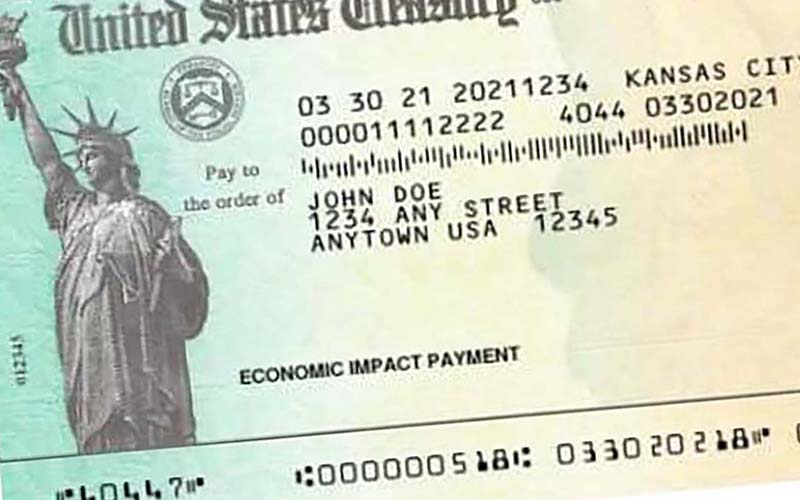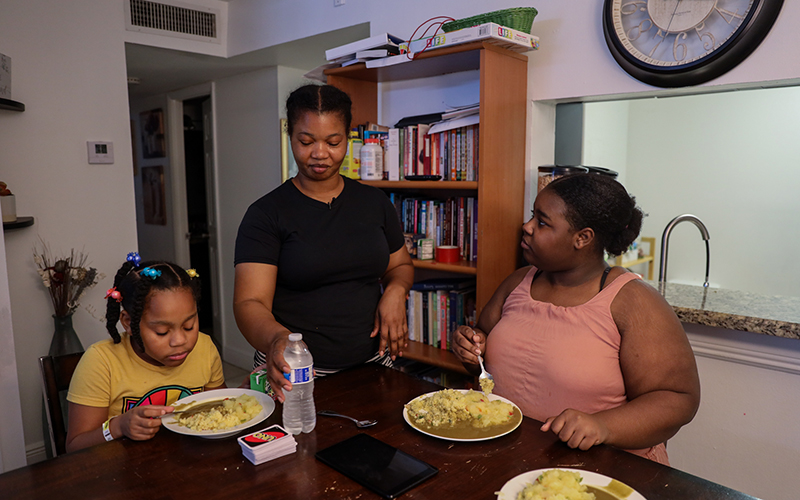WASHINGTON – A federal pandemic relief program that provided extra financial aid to jobless workers ended Monday, hitting more than 45,000 unemployed Arizonans who had already seen the state pull away another source of federal aid in July.
The Pandemic Unemployment Assistance program ultimately helped a total of 1.6 million Arizonans over the course of almost two years, offering them $240 in unemployment benefits a week for up to 79 weeks, according to the Arizona Department of Economic Security.
Arizonans like Maria Plascensia de Rios, who lost her job of 14 years in food service at Phoenix Sky Harbor International Airport when the pandemic all but shut down air travel.
“Even with the assistance, we did not have enough money,” Plascensia de Rios said, speaking in Spanish.
The Phoenix resident was in the midst of treatment for cancer when the pandemic hit, and ended up using most of her PUA funds to pay her $700 monthly insurance bills, after losing her health insurance when she lost her job. She and her husband, who is retired, had to rely on food bank assistance for groceries.
“We had to deprive ourselves of some things to make ends meet for other things,” Plascensia de Rios said.
The PUA program was approved by Congress in March 2020 to provide financial assistance to people who were unemployed as a result of the impact of COVID-19, but who did not qualify for traditional unemployment benefits. It was extended in March 2021, through last week.
People who were eligible for weekly PUA payments could also receive a weekly $300 supplement from the Federal Pandemic Unemployment Compensation program – until that was ended by the state on July 10.
Gov. Doug Ducey said the state would stop accepting the extra weekly payments from the federal government in an effort to push unemployed people to get back to work.
“In Arizona, we’re going to use federal money to encourage people to work…instead of paying people not to work,” Ducey said in a statement in May, when he announced his Arizona Back to Work Program.
In lieu of the extra unemployment assistance, the program offered a one-time $2,000 incentive to people who left the unemployment rolls for a full-time job or $1,000 for people took part-time work. The program, which was largely funded with federal dollars, also included child care, education and other sweeteners for people who took part.
But critics say that ending those benefits early did not have the intended effect of spurring people to get back in the workforce.
Evan Taylor, an assistant economics professor at University of Arizona, said unemployment data from the U.S. Bureau of Labor Statistics show Arizona is recovering only slightly faster than states that did not cut off benefits early. After the state unemployment rate soared from 4.8% to 14.2% at the beginning of the pandemic, it had dropped back to 6.6% in July – but that still trailed the national rate of 5.4% for that month.

Pandemic Unemployment Assistance was a lifeline for more than a year to workers who were put out of work because of pandemic-related shutdowns. (Photo courtesy Bureau of Engraving and Printing)
“The Arizona unemployment rate is still higher than the rest of the U.S.,” Taylor said. “This means that cutting off benefits early didn’t really make a difference.”
A July survey by Challenger, Gray & Christmas Inc. found that just 8.82% of companies cited the expanded unemployment benefits as a reason why workers were leaving current jobs, or not applying for new ones. Burnout or a desire for workplace flexibility were more often cited, said Andy Challenger, a senior vice president at the firm.
“There are a lot of valid reasons people are still worried and not going back to work,” Challenger said last week. “They are no longer going to have that safety net, but they still have other factors to worry about.”
Cutting one federal benefit was a blow to unemployed workers in Arizona, a state that already had one of the strictest and least-generous unemployment insurance programs in the country to begin with, said Andrew Sugrue, assistant director of policy & advocacy for the Arizona Center for Economic Progress.
“The pandemic demonstrated how weak the UI (unemployment insurance) programs really were,” Sugrue said.
The number of Arizonans receiving state unemployment benefits rose from 11,800 in March 2020, right before the pandemic hit, to more than 45,439 in August 2021, according to the Department of Economic Security.
This surge came in part from waived requirements for unemployment benefits, including eligibility for those who were not getting paid because their workplace closed due to COVID-19.
While traditional unemployment programs should be able to sustain people through a crisis, Sugrue said the pandemic pointed out the weaknesses in Arizona’s program, which needed the extra boost of federal funding to help people get by.
“This was ultimately a temporary solution. It didn’t do anything systemically to help the UI in the long run,” he said of the federal funds, adding that he hoped to see the assistance expanded, not ended.
“I’m lamenting Congress missing an opportunity to make some real foundational changes to unemployment insurance that would allow more workers to access the system,” Sugrue said.
COVID-19 unemployment benefits, like PUA, have been a key support for a lot of households during the pandemic, which is why he said it is unfortunate that Congress is letting them “fizzle out.”
While she valued the extra help, Plascensia de Rios knows that money is gone. She said she has constantly been applying for work, as she and her husband look for ways to make ends meet, and plans to keep looking.
“There is a real necessity in the community, and it’s going to be hard to move forward,” she said.



